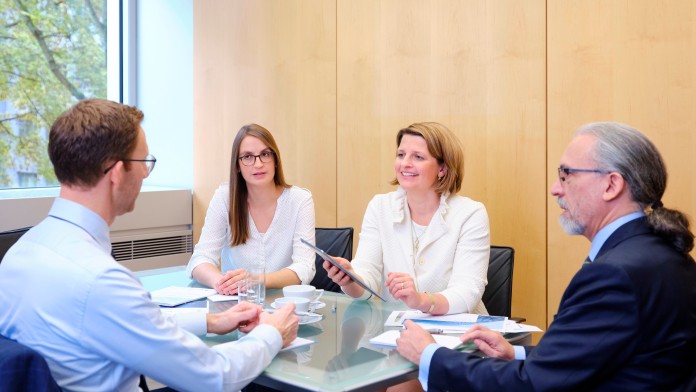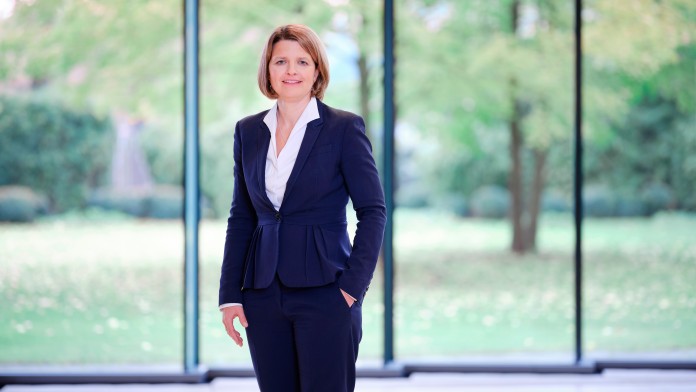Dr Friederike (Fritzi) Köhler-Geib has been KfW Chief Economist and head of the company's economics department since November 2019. She analyses trends relevant for KfW in the economy, society and on the financial markets and brings a new dynamic to the economic and financial policy debate. The focus of her work lies in the analyses of economic developments and growth trends in Germany. A particular focus is placed on small and medium-sized enterprises and the role of innovation and digitalisation in improving competitiveness, as well as issues related to the goal of a climate-neutral economy. Furthermore, Dr Fritzi Köhler-Geib also actively addresses economic policy connections between Germany, Europe and the world.

“The German economy returned to a modest growth rate in the past quarter. The good production data already announced this a few weeks ago, even though the sentiment indicators in the first quarter were still predominantly gloomy. In the meantime, however, sentiment indicators have also improved, meaning that there are signs of an economic acceleration on all sides. Nevertheless, the structural challenges remain, particularly due to demographic ageing, decarbonization and the intensified competitive environment in many areas.”
"The German labour market is proving to be an anchor of stability for the German economy at the start of spring 2024. The robust constitution is also evident in an international comparison. The unemployment rate according to the ILO definition was 3.4% in March. This is lower than the unemployment rate reported by the Federal Employment Agency (6.0% in April), as registered unemployed people in marginal employment are also considered to be in employment. By way of comparison, the average unemployment rate in the eurozone countries is 6.5%. Only Malta had a slightly lower rate than Germany. The low unemployment rate is a success of German labour market policy but it also reflects the bottlenecks on the labour market. There are a particularly large number of unfilled positions in areas such as healthcare and social services, trade, construction and the public administration, defence and social security sectors. There is also a shortage of apprenticeship applicants: only 40% of the 455,000 training places registered in April could be filled by then, and there were 76,000 fewer applicants than five years ago."
“The start of the interest rate turnaround is approaching in the eurozone. I expect the deposit rate to be lowered in July at the latest. Overall, consumer price inflation remained unchanged in April. However, the fact that services inflation has eased after a five-month standstill is likely to be more important for the ECB. At the same time, the growth environment in the eurozone suggests that inflation remains on target. Although gross domestic product surprised on the upside in the first quarter and sentiment has recently brightened somewhat, the European economy is likely to be slow to pick up speed. This suggests limited domestic price pressure. However, the development of energy prices remains a risk factor for inflation and the economy due to the ongoing geopolitical tensions.”
Previous comments from Dr Fritzi Köhler-Geib

Rebuilding the economy after COVID-19 and tackling the climate crisis must go hand in hand. For Germany to achieve its target for climate action, it needs to tap into overlooked areas of potential to reduce its CO₂ emissions. In particular, this process will be essential for the transport sector. And there is even more that can be done with innovative building solutions.
14.05.2024 | Deutscher Stiftungstag 2024, Hannover
22.05.2024 | Sitzung des Mittelstandsrats, Berlin
03.06.2024 | Ostdeutsches Wirtschaftsforum 2024, Bad Sarrow
KfW Research, KfW Group, Palmengartenstrasse 5-9, 60325 Frankfurt, Germany,
Share page
To share the content of this page with your network, click on one of the icons below.
Note on data protection: When you share content, your personal data is transferred to the selected network.
Data protection
Alternatively, you can also copy the short link: kfw.de/s/enkBcl5a
Copy link Link copied